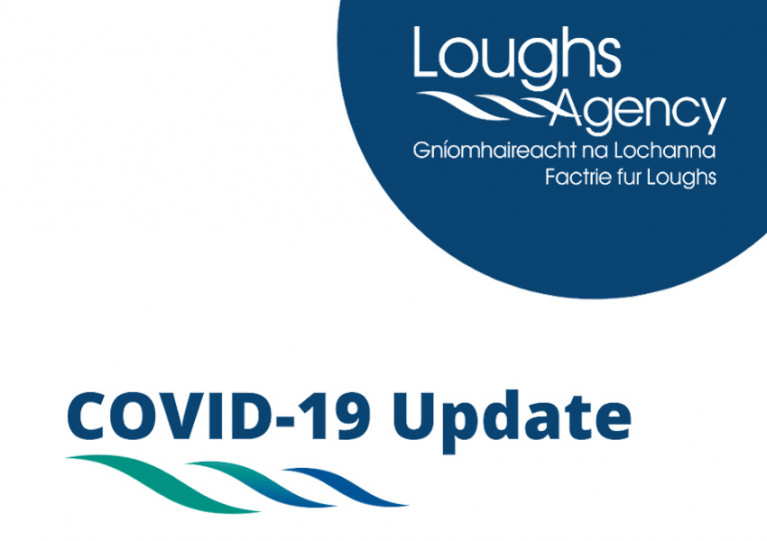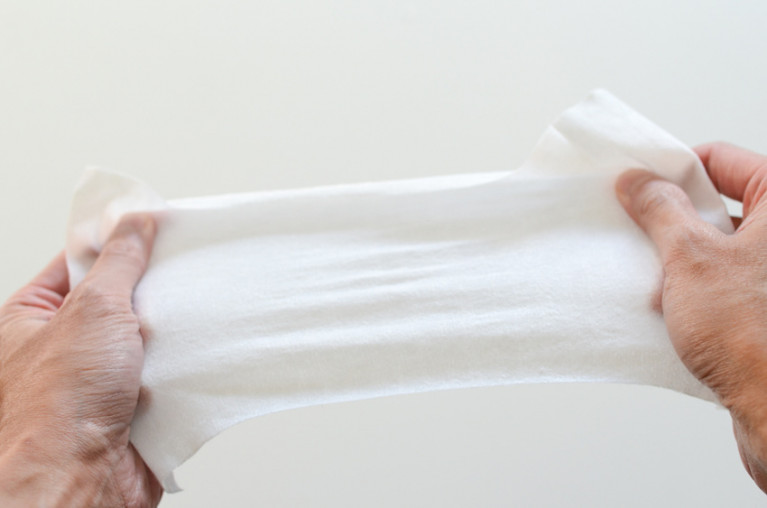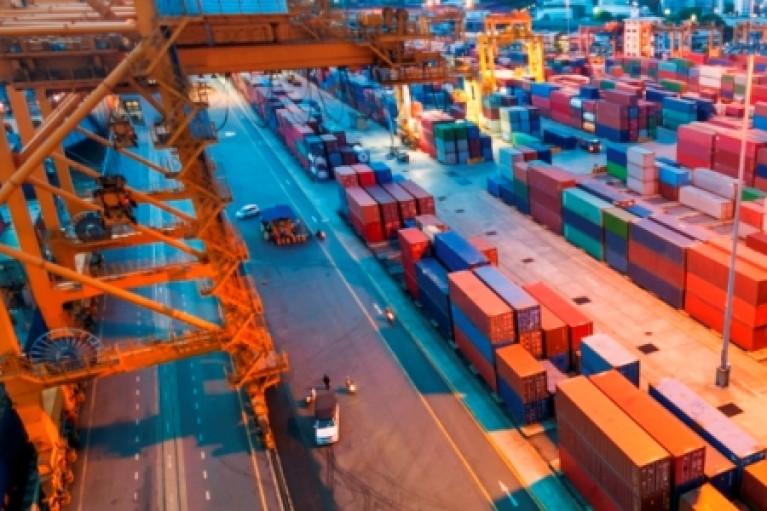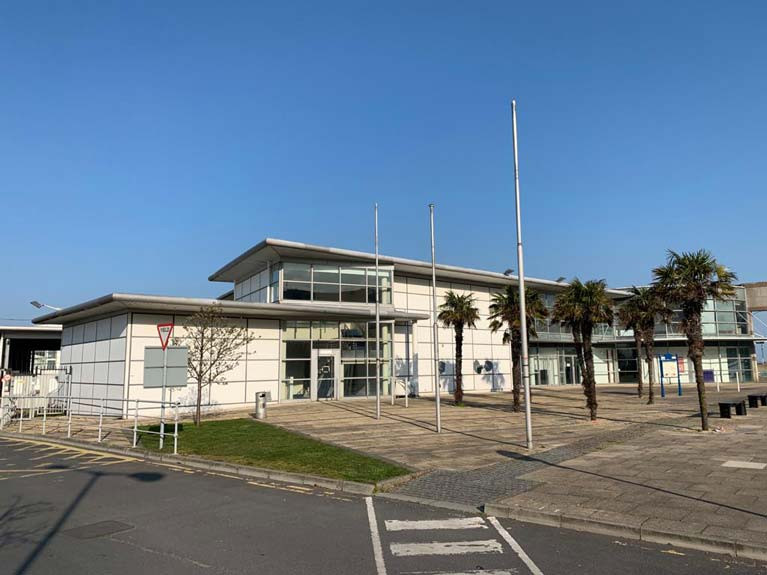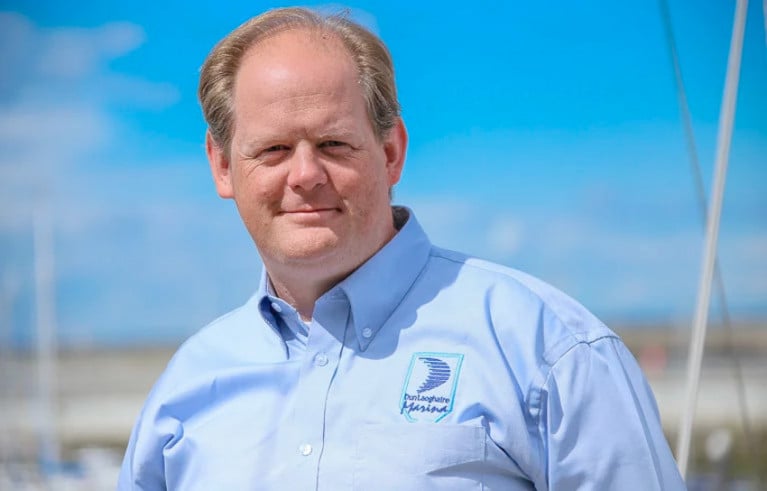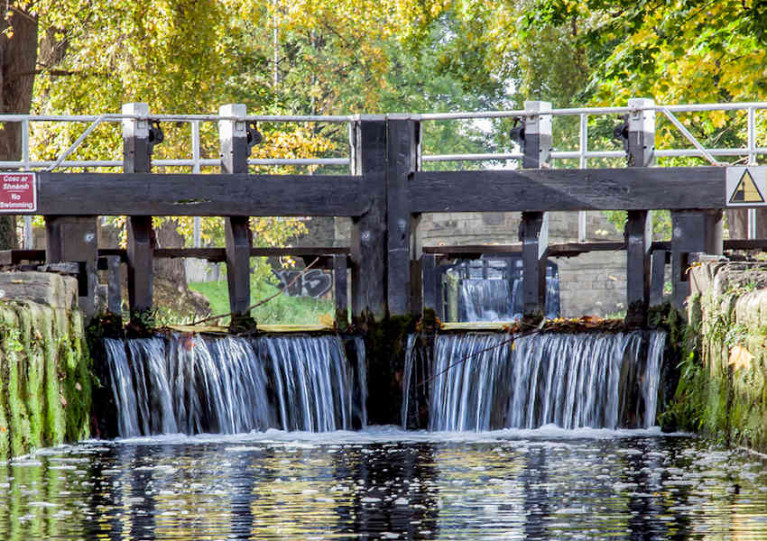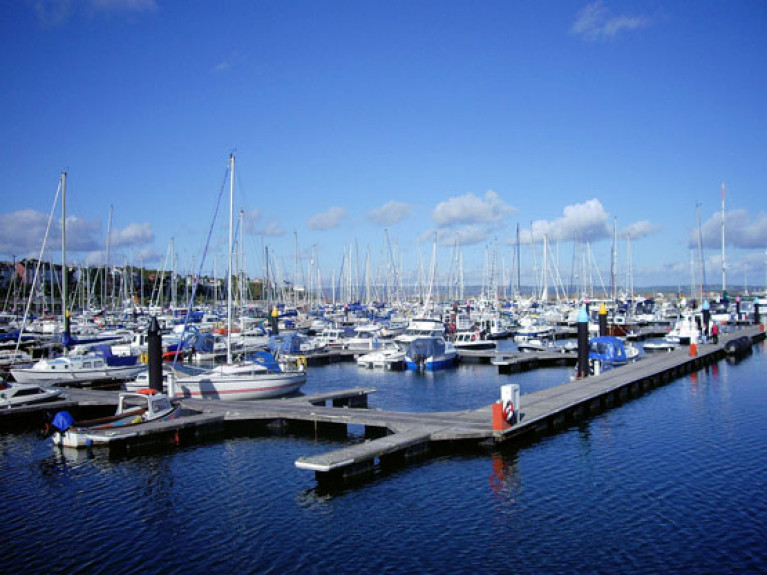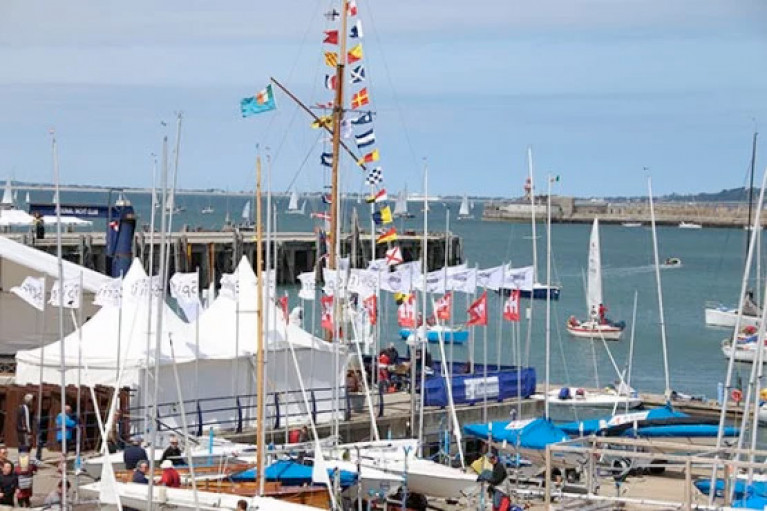Displaying items by tag: Coronavirus
Loughs Agency Updates On Operations Due To Covid-19
Following the UK Government’s advice in relation to Covid-19, the Loughs Agency has put in place a number of measures to maximise capacity to continue to deliver business and statutory services to the public.
The public are still encouraged to report illegal angling or pollution concerns through the Waterwatch App or 24-hour response line on +44 2871 342100.
Loughs Agency offices remain closed and customers are strongly encouraged to engage using email ([email protected]) and telephone (+44 2871 342100).
Those wishing to pay bills or undertake other financial transactions with the Loughs Agency are requested to do so online, via telephone or by bank transfer.
Staff will be, if possible, working from home. In these circumstances there may be delays in replying to queries.
The agency adds that it is currently experiencing technical difficulties with its elicence website, and is working to try and fix the issue as quickly as possible.
Regarding the current restrictions announced by the Irish and UK Governments, the cross-border body for fisheries in Carlingford and Foyle reminds that the only permitted activities that have been specified are walking, running and cycling for the purpose of local daily exercise.
“We must all do what is required of us by the Government’s and work together to fight this pandemic. This is about saving lives and supporting our healthcare systems and frontline staff,” it added in a statement.
Warning Over Wet Wipes ‘Spreading Covid-19 Via Ireland’s Waters’
Improper disposal of wet wipes could cause the coronavirus to spread via Ireland’s recreational waters, it’s being claimed.
The Green News reports on Coastwatch Ireland’s warning over the use of wet wipes, which are linked to around 90% of wastewater overflows as households flush them instead of binning them.
With a much larger volume of such wipes being used, both in the bathroom and to keep surfaces clean in homes amid the Covid-19 outbreak, there are fears that treatment plants and septic tanks could be pushed past their limits and spread the virus.
The Green News has more on the story HERE.
Temporary measures are being put in place in relation to the validity of both seafarers’ documents and the survey and certification of Irish-registered ships impacted as a result of the Covid-19 pandemic.
Marine Notice No 14 of 2020 outlines measures and procedures to provide for a temporary extension to the valid of seafarer certificates in order to minimise as much as possible the impact of Covid-19 on the maritime and shipping sectors.
Meanwhile, Marine Notice No 15 of 2020 sets out temporary provisions for survey and certification of Irish ships, including a three-month extension on the validity of certificates where surveys are not possible due to personnel and travel restrictions.
Both Marine Notices are available to download below.
Dun Laoghaire Ferry Terminal Suggested As Covid-19 Testing Site
A Dun Laoghaire senator has suggested that the currently vacant ferry terminal at the south Dublin harbour be employed as a Covid-19 testing centre.
In a letter to Dun Laoghaire-Rathdown County Council chief executive Philomena Poole, as seen by Afloat.ie, Senator Victor Boyhan says the St Michael’s Pier terminal building “would be ideal as a drive-in Covid-19 testing and support centre”.
He outlines a number of reasons for this, which include “its proximity to population along the east coast, its size, facilities and car capacity, and that it is disconnected from the principal residential quarter of the town”.
He continues: “Planning permission would not be an issue, given the emergency powers in place to deal with the Covid-19 pandemic and the temporary nature of the use.
“The harbour terminal buildings extend to about 7,000 sq m (75,000 sq ft) with large, open-plan internal spaces and a wide range of facilities on the site.
“The property has 95 car-parking spaces for occupiers and visitors along with additional roll-on-roll-off car standing facilities that were put in place for the car-ferry service.
“Public transport including the Dart and a number of Dublin Bus routes are within a two-minute walk of the complex, so the site is very accessible to the general public – an important consideration.
“In simple terms, the site is ideal as an emergency Covid-19 testing and support centre.”
Senator Boyhan adds that he had contacted HSE bosses and Health Minister Simon Harris suggesting they explore the suitability of the site with DLRCoCo.
Irish Marine Federation Calls For Marine Industry Staff To Be Classified ‘Essential Workers’
Following today’s (Tuesday 23 March) announcement of further restrictions to combat the spread of Covid-19, the Irish Marine Federation has called for marine industry staff to be classified as ‘essential workers’.
Taoiseach Leo Varakdar announced a slate of new measures on top of existing restrictions, which have been extended from this Sunday 29 March to Sunday 19 April.
These include limiting unnecessary travel, the cancellation of all sporting events and the shutting of ‘clubs’ — though it is not clear if yacht clubs and similar fall under this distinction.
Earlier today Bangor Marina announced its closure following severe lockdown restrictions confirmed by UK Prime Minister Boris Johnson, and its expected all other marinas and boating facilities in Northern Ireland and Great Britain will follow suit.
Meanwhile, Irish Marine Federation chairman Paal Janson has contacted the ministers for transport, trade and the marine on behalf of marina and boatyard operators here “to ensure that our sector is not left out when any guidelines or legislation is drawn up to limit travel and when they are defining ‘essential workers’”.
Janson, who is also general manager of Dun Laoghaire Marina, said: “Many of us will have a requirement to maintain access for emergency services and State Agencies, as well as looking after our customers' boats and marina/boatyard facility.
“We do not have the option to work from home, so we should not be forced to shut our doors.
“Through our membership of ICOMIA (the International Council of Marine Industry Associations), I am in contact with other marina operators around Europe (and the world) and am keeping abreast of what other countries are imposing on their domestic industries.
“I would encourage our own membership to keep in contact with the group and discuss the plans and implementations that are being carried out to protect staff and customers.”
Leave No Trace Guidelines for Getting Outdoors Responsibly & Safely During Covid-19 Pandemic
Outdoor ethics programme Leave No Trace Ireland has published a set of simple guidelines for getting outdoors responsibly and safely amid the Covid-19 crisis.
“Now, more than ever, it is vitally important that collectively, we use the outdoors responsibly, taking care of each other and taking care of our local environs, our magnificent wildlife, our lands and waters,” the programme said.
“As seen in the media, overcrowding at popular outdoor beauty spots, lack of social distancing, increased disturbance of wildlife and vegetation, rubbish left behind, are all indicators that outdoor use is up but we are not caring for our outdoor spaces as we should be.
“Following Leave No Trace Guidelines ensures we are being collectively responsible in our use of outdoor spaces, protecting ourselves, our families, our fellow citizens and our incredible island.”
Leave No Trace Ireland’s guidelines are:
- Plan Ahead: Check weather, bring proper clothing and footwear, water and food. Park and walk responsibly.
- Expect Closures: Before leaving home, consider lack of usual facilities such as toilets, shops, cafes, restaurants.
- Stay Home or Local: Unwell? Don't go! Feeling well? Look for local trails, hidden gems, explore closer to home.
- Be Considerate: Maintain social distancing throughout the day. Keep group sizes small. There is plenty of space in the outdoors for everyone!
- Time and Place: Find those hidden gems, avoid peak times, avoid difficult routes. Adhere to HSE guidelines.
- Leave No Trace: Don't rely on or add to already overburdened services. Bring your own rubbish home.
- Be Dog-Responsible: Keep dogs under control. Mind out for young wildlife. Pick up and bring home dog waste.
Leave No Trace Ireland also reminds of its seven principles: prepare for spring weather conditions, stick to trails, dispose of waste properly, minimise fire impacts, leave what you find, keep a safe distance from wildlife, and be considerate of others.
If you are well, remain active through outdoor pursuits, but do your part and comply with the latest Government guidelines issued by the HSE in the Republic of Ireland and the HSC Public Health Agency in Northern Ireland. For more up to date information and advice about coronavirus (Covd-19), visit www2.hse.ie/coronavirus
For ideas on where to find inspiration for safe and responsible outdoor activities, see LeaveNoTraceIreland.org and share these ideas with friends and family on social media #LeaveNoTrace #WeLoveNature
Bangor Marina Closes Under UK’s Three-Week Covid-19 Lockdown
Following last night’s announcement by Prime Minister Boris Johnson of a full lockdown in the UK over the next three weeks, Bangor Marina in Northern Ireland has closed and is asking customers to stay away for the duration of the lockdown period to help reduce the spread of Covid-19.
In a statement on their Facebook page, the marina team said: “We wish to act responsibly, and in line with Government advice. So although it goes against everything we stand for, we have to ask our customers to keep away from Bangor Marina until the situation improves. Not easy, with bright and beautiful weather out there.
“We can only hope that by us all taking these restrictions seriously we can reduce the spread of this horrible disease, so that we can all get back on the water soon, in time to enjoy the summer boating season in July and August.”
As from today, Tuesday 24 March, Bangor Marina is taking the following steps:
- Customers should not be visiting our Bangor Marina, but should be following UK Government advice and avoiding all non-essential travel, including visiting their boat.
- The marina reception is closed. Most of the office-based team are now working remotely, so pick up the phone or email as you normally would. They will do their best to answer any questions or enquiries you may have about berthing or the operation of the marina. You can continue to make payments in all the usual ways, including through our online portal.
- Customers are respectfully asked not to ‘quarantine’ or ‘isolate’ themselves on their boats. You should remain in your primary residence. The marina insists its staff are “still busy looking after your boat”.
- If you haven’t yet confirmed your berthing plans for the next few months, please do so as soon as possible.
“We understand what a difficult time this is, but our whole team are firmly focused on riding out this storm with you, and we remain hopeful that the clouds will pass in time for us all to make the most of our summer boating season later in the year,” the statement added.
It’s expected that all marinas and sailing, boat and yacht clubs in Northern Ireland and Great Britain will be closed for the lockdown period, which will be reviewed by Easter Monday, 13 April.
European Maritime Day Postponed To Later This Year
In light of the rapidly evolving situation and public health measures due to the coronavirus, a decision has been taken to postpone European Maritime Day in Cork Harbour until later this year.
The European Maritime Day Team released the following statement regarding European Maritime Day 2020:
Dear speaker, dear workshop organiser, dear stakeholder,
We would like to take this opportunity to thank you for your support for European Maritime Day (EMD) 2020 in Cork, Ireland on 14-15 May.
Given the implications of coronavirus for all countries including restrictions on travel, it is with regret that, together with Cork City Council and the Irish Marine Coordination Group, we have decided to defer EMD.
We are currently looking into possible alternative dates later in the year and will keep you posted.
We thank you for your understanding and hope that you will be able to join us in Cork later in 2020.
Clubhouse Upgrades And Plans In Works At National Yacht Club
In response to the continuing Covid-19 situation, the National Yacht Club has revised its plans for 2020 in preparation for the eventual resumption of sailing activity.
Commodore Martin McCarthy says cost and staffing adjustments have been made to complete some major maintenance works at the Dun Laoghaire waterfront clubhouse, including just-completed upgrades to the hot water system.
Another protect, the renovation of the wooden benches in the changing rooms, falls under the sustainability efforts that saw the NYC recognised as Sustainable Club of the Year (along with Bray Sailing Club) in Saturday night’s Irish Sailing Awards.
Commodore McCarthy said: “Grainne Ryan has led our effort on that front so congrats and well done to Grainne.”
In an email update to club members, the commodore added that “the fabric of the club and esprit de corps are vital assets we are working hard to protect” — as he confirmed plans are still in train for lift-in day on Saturday 11 April.
Meanwhile, many members are working on their boats and are encouraged to do so in compliance with physical distancing and Department of Health hygiene regulations.
“As a club, our primary focus is the welfare and safety of our staff and members,” Commodore McCarthy said. “Observing the guidelines on physical distancing as the storm of Covid-19 blows through in the coming weeks is a top priority.”
Olympics Chiefs To Decide Within Four Weeks Whether Tokyo 2020 Is Delayed Or Scaled Down
The International Olympic Committee has given itself a four-week deadline to decide whether to postpone the Tokyo Olympic Games set for this summer or reduce the scale of events, amid the continuing Covid-19 pandemic crisis.
It comes after IOC president Thomas Bach was emphatic that a cancellation was not on the agenda — as the IOC backtracks on its previous confirmation, and sporting bodies believe the most likely scenario is the Games are pushed back by an entire year.
The Guardian reports that Canada has already withdrawn its Olympic teams over coronavirus concerns, and that World Athletics have written to the IOC to say holding events as planned is “neither feasible nor desirable”.
The situation has thrown every Olympic campaign into disarray, both for competitors already qualified and for the likes Irish sailors yet to secure a spot, who already face last-minute changes to the qualification process.
On Friday (20 March), in an interview with German broadcaster SWR, Thomas Bach — who is quarantined at his home office in Lausanne, Switzerland — said: “You cannot postpone Olympic Games like a soccer game to next Saturday.
“This is a very complex business, where you can only act responsibly if you have reliable and clear bases for decision-making, and we monitor this every day, 24 hours a day.”
Scuttlebutt Sailing News has more on the story HERE.


























